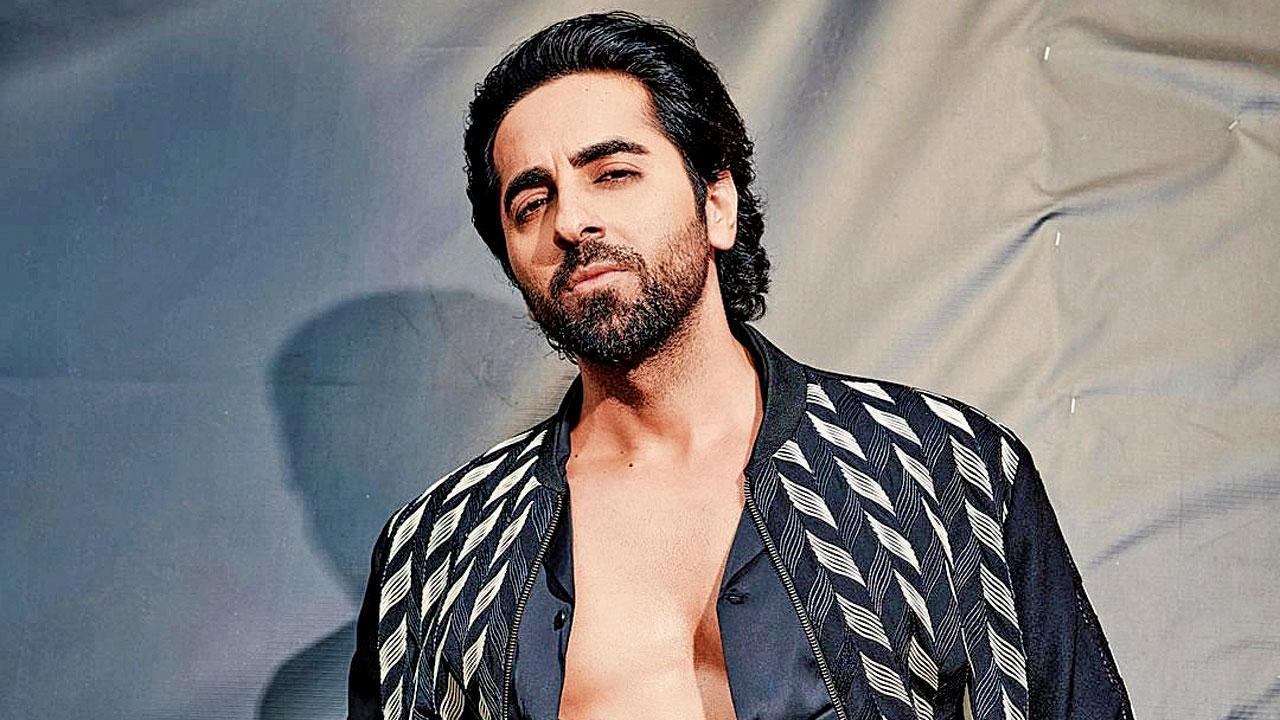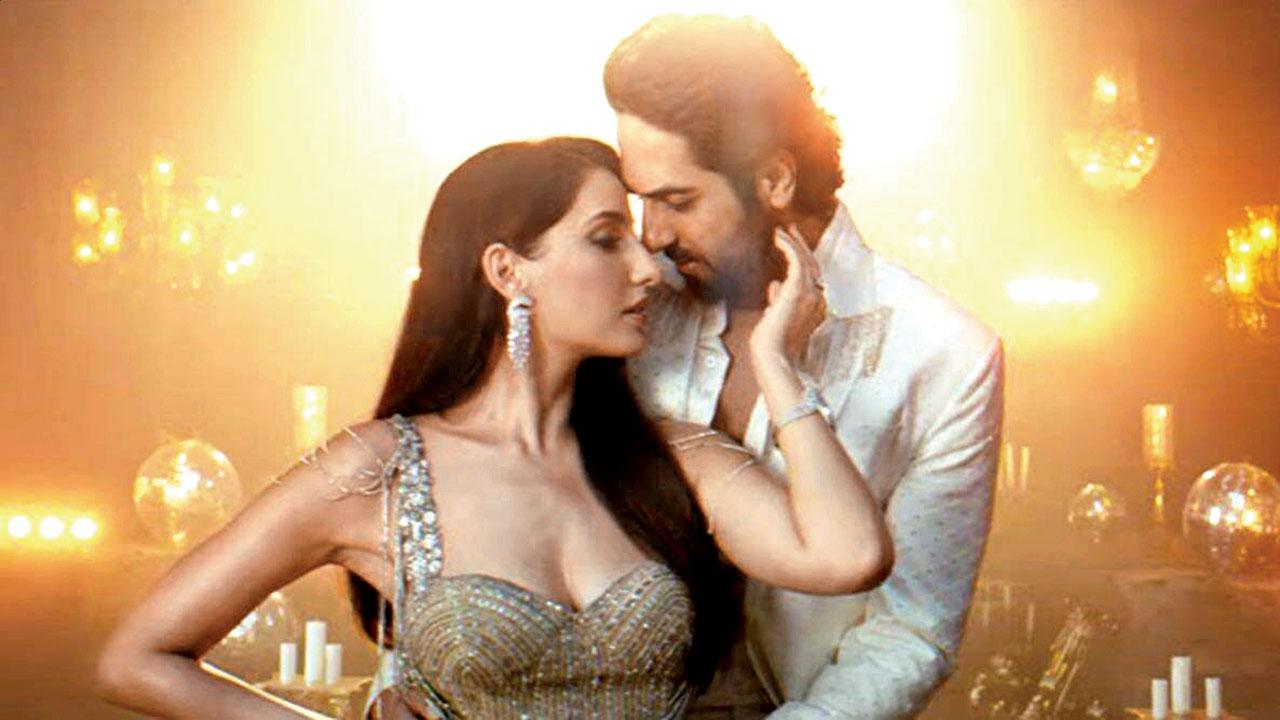Admitting that fans of his brand of social comedies have moved to OTT during the pandemic, Ayushmann Khurrana says An Action Hero is his stab at reinvention

Pic/Instagram
This film has no taboo subject, no message,” he declares. These words, coming from Ayushmann Khurrana, signal a change. In the past few years, the actor has become the poster boy of social comedies. But An Action Hero is far removed from his brand of cinema. “It suits the [audience’s] palette in the post-pandemic era. It’s also my first post-pandemic choice. This movie reinvents me as an actor because I have never done hardcore action before,” he shares. Anirudh Iyer’s directorial venture sees Khurrana as a popular movie star who has an unlikely encounter with an angry fan. “Of everything that you have seen [from me] in the last few years, this is the most [mainstream] film. It feels like a relaunch,” smiles Khurrana.
ADVERTISEMENT
Also Read: Watch video! Sima Taparia: Hema and Dharmendra are the ideal celebrity couple

A still from the film
So, what prompted the reinvention? Since 2017, he has been on a dream run, having cracked the difficult formula of turning topical social issues into commercially viable projects — be it tackling erectile dysfunction in Shubh Mangal Saavdhan (2017), or questioning casteism in Article 15 (2019). But after the pandemic, the audience doesn’t seek relatable stories on the big screen anymore. “I am probably the only one in the industry who has to shift gears to [draw audience] to theatres now. It’s tough to make overtly progressive films for theatres today because people, who are progressive, consume entertainment on OTT. It’s difficult to get the same kind of footfall today for Article 15 that it got back in the day. What is the use of an Article 15 if it wasn’t successful on the big screen? OTT consumers already know about these [social issues].”
Also Read: Have you heard? Metro life first, Aashiqui later
That’s not to say he won’t lead socially relevant films. The idea is to reimagine them for the big screen so that they reach the audience they want to influence. “How will you reach out to people who are casteist? How is it ‘cinema for change’ when you make progressive content for already progressive people? If [we] make an Article 15 today, it will have more commercial elements. My endeavour will always be to have an Article 15 on the big screen because that’s my stubbornness.”
 Subscribe today by clicking the link and stay updated with the latest news!" Click here!
Subscribe today by clicking the link and stay updated with the latest news!" Click here!












